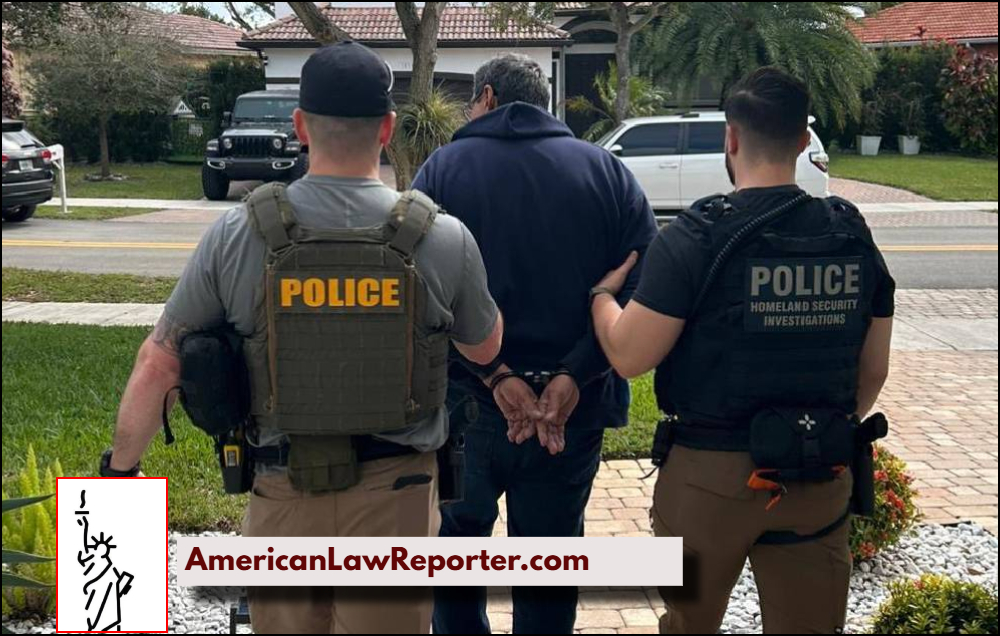In a sharply divided decision on Tuesday, June 17, the City of Miami Commission voted 3-2 to enter into a 287(g) agreement with U.S. Immigration and Customs Enforcement (ICE).
The move authorizes certain city police officers to perform limited federal immigration enforcement functions.
The move has sparked significant legal, political, and civil rights debate, drawing intense backlash from residents, advocacy groups, and some commissioners.
The 287(g) program—a provision under the Immigration and Nationality Act—allows the federal government to delegate immigration enforcement authority to state and local law enforcement agencies through formal agreements. These partnerships are administered by ICE’s Enforcement and Removal Operations (ERO) and have been criticized for creating an environment of fear in immigrant communities.
What the 287(g) Agreement Does
Under the agreement approved by the City of Miami:
- Select Miami Police Department officers will be trained by ICE to question, arrest, and detain individuals suspected of violating federal immigration law.
- These officers will operate under ICE supervision while performing immigration enforcement duties, including checking immigration status and initiating removal proceedings.
While the city commission emphasized that only trained officers will have this authority, critics argue that the agreement could lead to racial profiling, due process violations, and a breakdown in community trust.
The Vote and Community Reaction
The resolution was passed with votes from Commissioners Joe Carollo, Miguel Angel Gabela, and Ralph “Rafael” Rosado, while Commissioners Christine King and Damian Pardo cast dissenting votes.
“It is the climate that this legislation proposes that is toxic for the City of Miami,” said Commissioner Pardo. “Because the climate we are looking at is one of fear and repression and not welcoming.”
The commission chambers were filled with residents during the meeting, many of whom spoke out passionately against the proposal.
Resident and activist Yareliz Mendez Zamora recounted the impact immigration enforcement had on her family growing up:
“I was lucky enough to be born a citizen, but that doesn’t mean I didn’t see my mom struggle, my aunt struggle. I know the fear that there is when you are small and you have no idea if your mother is going to come back.”
Legal Implications and State-Level Support
The 287(g) program has long been controversial and subject to legal scrutiny, especially over concerns that local participation in federal immigration enforcement may violate constitutional protections.
Critics cite:
- Fourth Amendment issues, including warrantless detentions and improper immigration holds;
- Equal Protection Clause violations arising from racial profiling;
- And federal preemption concerns, where state and local governments overstep their authority in immigration matters.
Yet Florida Attorney General James Uthmeier voiced strong support for the agreement in an exclusive interview:
“At the end of the day, we believe in the rule of law. I don’t believe people should be here illegally and we need to ensure that we are enforcing federal laws and supporting Homeland Security and ICE as best we can.”
Uthmeier’s comments reflect Florida’s broader efforts to support state and local enforcement of federal immigration laws—a trend that has already led to litigation in other jurisdictions.
Additional Governance Measures
In the same meeting, commissioners also approved two additional items by a 3-2 vote:
- Term limits for elected officials—a move aimed at increasing accountability and reducing political entrenchment.
- Shifting city elections to even-numbered years, aligning with presidential and gubernatorial cycles to boost voter turnout.
What’s Next?
With the 287(g) agreement now approved, implementation will involve:
- Formal training of designated officers by ICE;
- Ongoing oversight by federal authorities;
- And likely continued legal monitoring by civil rights organizations.
Opponents say they will consider legal challenges and community action to resist the program’s rollout.

